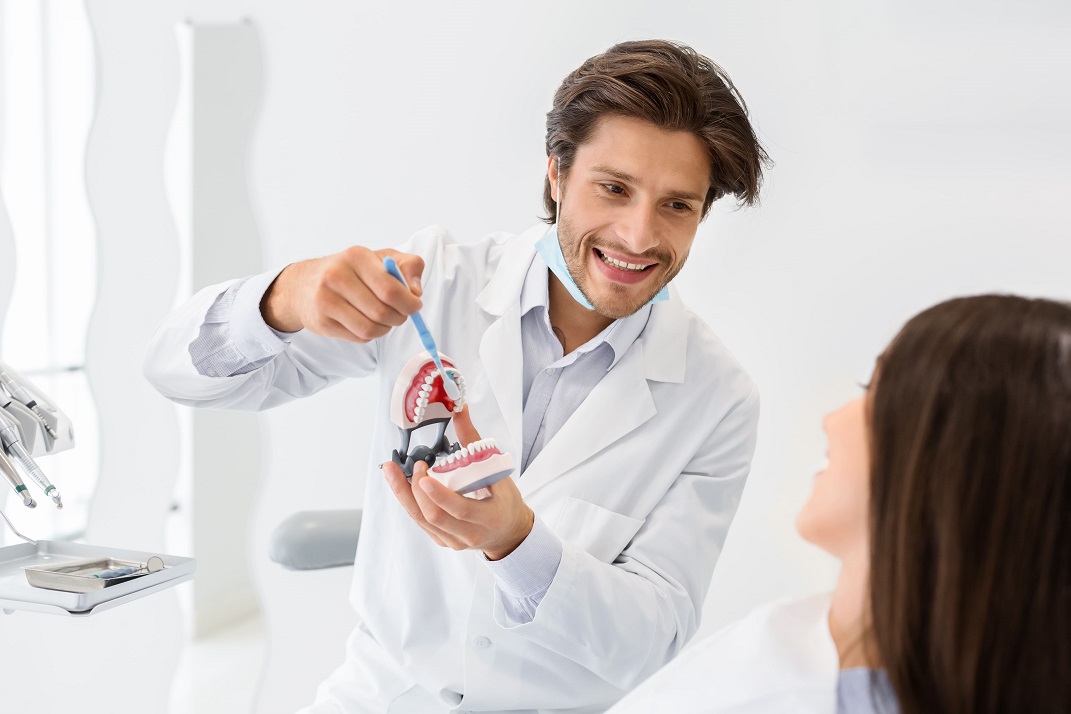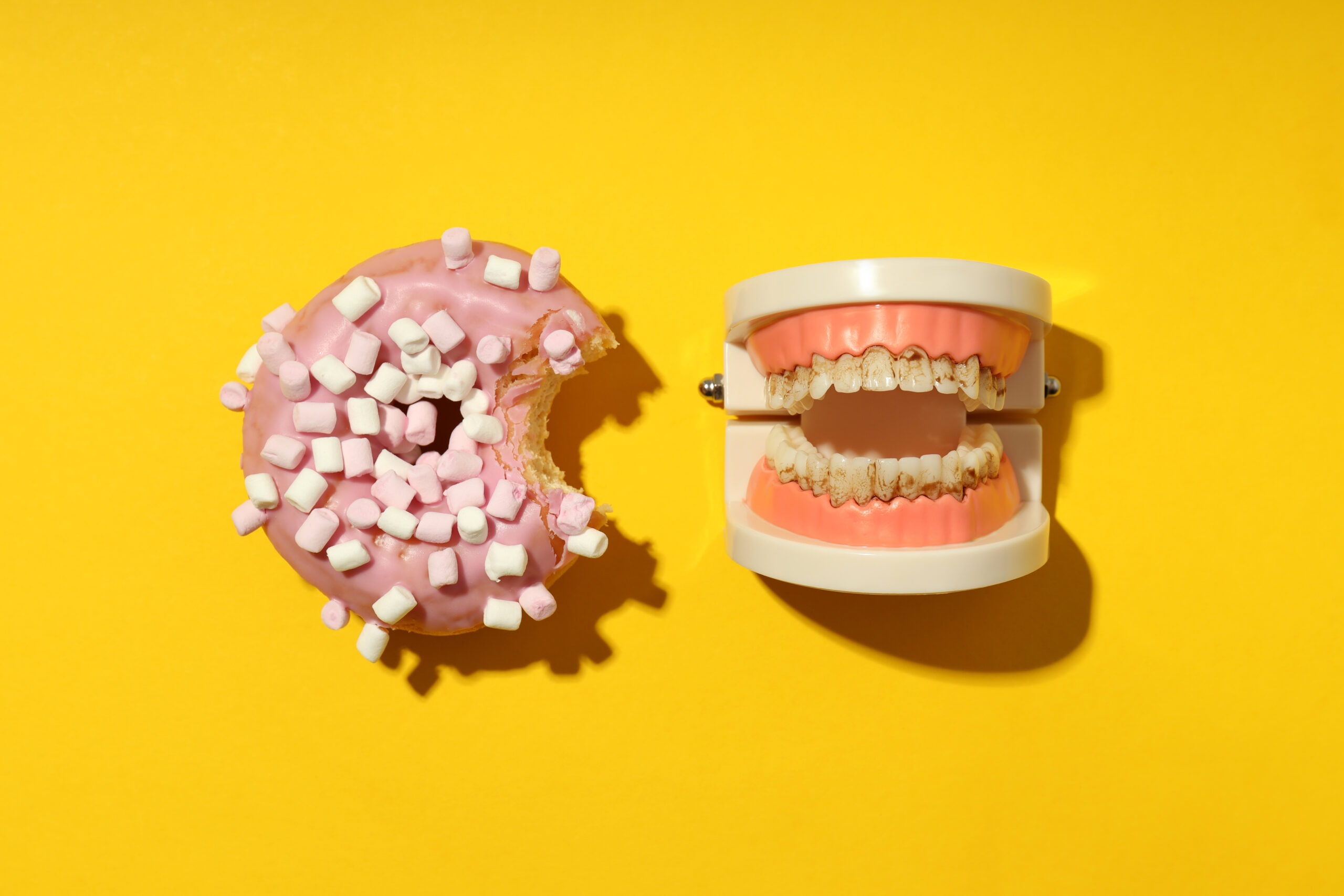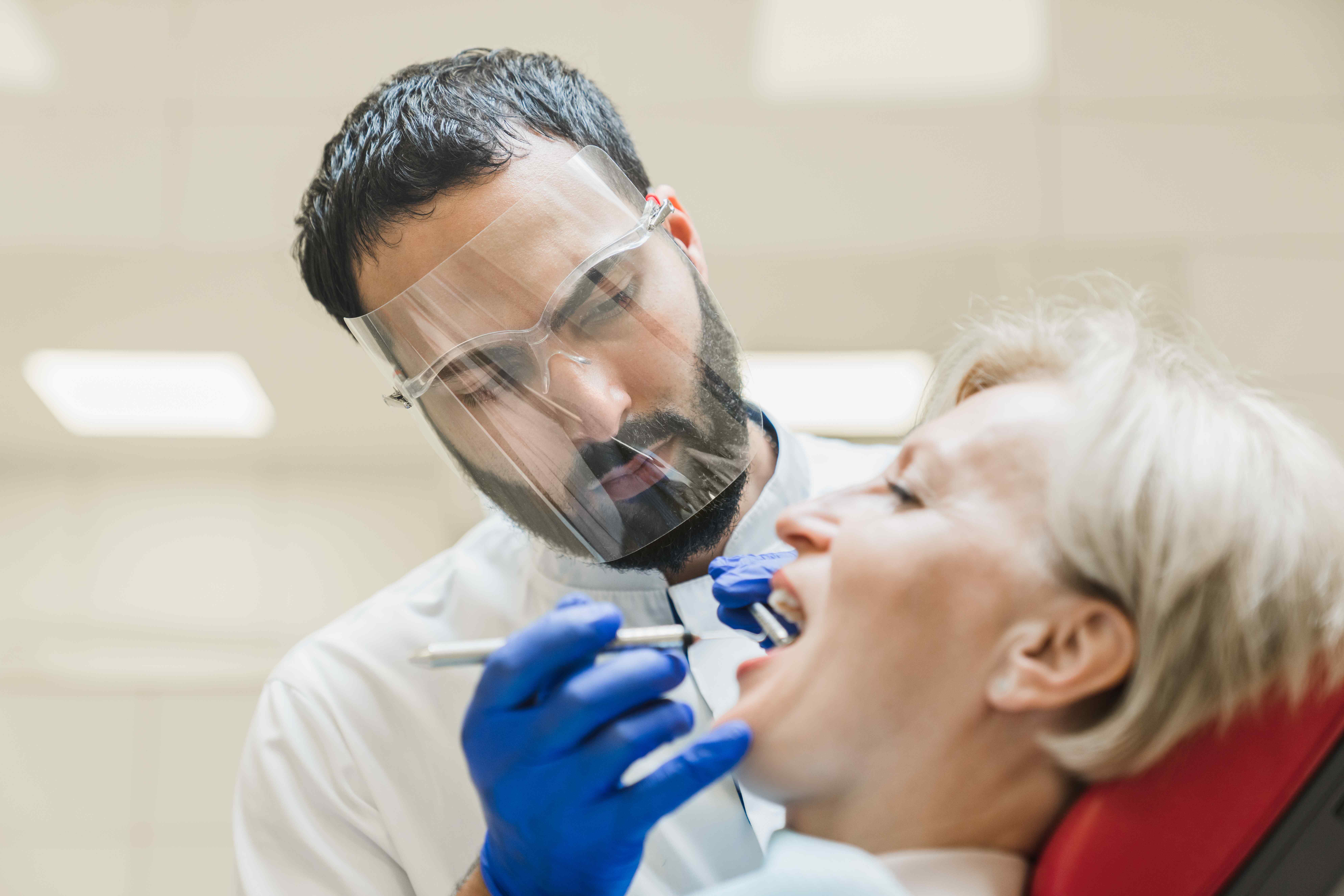Tooth decay is one of the most common chronic health issues worldwide, affecting individuals of…

New Year’s Resolutions for a Brighter Smile: Your Guide to Dental Care
As a new year begins, many of us set personal goals. While common resolutions often focus on fitness and finances, your smile deserves a spot on that list too. A healthy mouth isn’t just about a bright smile – it’s essential for your overall health.
Research shows strong links between oral health and various systemic conditions, including heart disease, diabetes, and respiratory infections. By prioritizing your dental care, you’re making an investment in your complete health.
Ready to improve your dental routine? The team at the Center for Restorative, Cosmetic, and Implant Dentistry (CRCID) has put together this list of key areas to focus on this year:
- Upgrade Your Toothbrush: Switch to an electric toothbrush for better plaque removal
- Floss Daily: Make interdental cleaning a non-negotiable part of your routine
- Stay Hydrated: Drink enough water to support your mouth’s natural defense system
- Visit the Dentist Regularly: Schedule and keep up with professional dental appointments
Think of these dental resolutions as steps towards a healthier you. Each small change in your daily routine leads to stronger teeth, healthier gums, and increased confidence in your smile.
1. Commit to Using an Electric Toothbrush
Switching to an electric toothbrush can greatly improve your dental care routine. Studies show that electric toothbrushes can remove up to 21% more plaque compared to manual brushing, resulting in significantly better gum health.
Key Benefits of Electric Toothbrushes:
- Built-in timers ensure thorough 2-minute brushing sessions
- Pressure sensors prevent aggressive brushing that damages gums
- Consistent brush strokes deliver optimal cleaning power
- Multiple brushing modes for sensitive teeth and gum care
The latest electric toothbrush technology brings impressive innovations to enhance your brushing experience. Sonic technology creates powerful vibrations–up to 31,000 brush strokes per minute–breaking up stubborn plaque between teeth and along the gum line. These high-frequency vibrations generate dynamic cleaning action that reaches deep between teeth where manual brushes often miss.
Advanced Features to Consider:
- 360-Degree Brush Heads: Clean multiple tooth surfaces simultaneously
- Smart Sensors: Track brushing habits and provide real-time feedback
- UV Sanitizers: Keep brush heads clean between uses
- Extended Battery Life: Wireless charging for weeks of use
Modern electric toothbrushes come with smartphone apps that map your mouth and guide you through optimal brushing patterns. These smart features help develop better habits while making dental care engaging and effective.
When choosing your electric toothbrush, keep these factors in mind:
- Brush head size and shape
- Available cleaning modes
- Battery life and charging options
- Water resistance rating
- Replacement brush head availability
A quality electric toothbrush represents an investment in your oral health. While premium models may cost more initially, the superior cleaning power and long-term benefits to your dental health make them worth considering. Many dentists recommend starting with a mid-range model to experience the advantages of electric brushing without overwhelming features. Ask your CRCID dentist what they recommend for your brushing needs.
2. Develop a Regular Flossing Routine
Your brushing routine might be perfect, but without flossing, you’re missing 35% of your tooth surfaces. Flossing reaches those crucial spaces between teeth where food particles and bacteria love to hide. These hidden areas can become breeding grounds for cavities and gum disease when left unchecked.
Why Flossing Matters:
- Removes stubborn food particles stuck between teeth
- Prevents plaque buildup in hard-to-reach areas
- Reduces risk of gingivitis and periodontal disease
- Freshens breath by eliminating trapped debris
- Stimulates gum tissue for better blood circulation
The dental care market offers various flossing options to suit different preferences and needs:
- Waxed Floss: Slides easily between tight spaces
- Unwaxed Floss: Thinner and fits into narrow gaps
- Dental Tape: Broader and flat for wider spaces
- Flavored Options: Mint, cinnamon, or unflavored varieties
However, there are also some modern alternatives that may work better for some patients:
- Water Flossers: Use pressurized water streams to clean between teeth
- Floss Picks: Pre-threaded tools for easier handling
- Interdental Brushes: Small brushes for cleaning larger gaps
Water flossers have gained popularity as an effective alternative to traditional string floss. These devices can be particularly beneficial for people with:
- Orthodontic appliances
- Dental bridges
- Limited manual dexterity
- Sensitive gums
The best flossing method is the one you’ll use consistently. Try different options to find what works for your dental needs and lifestyle. Some people prefer the precision of traditional floss, while others value the convenience of water flossers or floss picks.
Remember to be gentle when flossing to avoid damaging your gums. Proper technique involves creating a C-shape around each tooth and moving the floss up and down rather than sawing back and forth. At your next appointment, ask your dentist or hygienist at CRCID for a tutorial of proper flossing techniques.
3. Prioritize Hydration Throughout the Year
Water plays a vital role in maintaining your oral health. Your mouth relies on proper hydration to produce saliva, your body’s natural defense against tooth decay and gum disease. Saliva acts as a protective shield, neutralizing harmful acids from foods and bacteria while washing away food particles that could lead to cavities.
Here’s how staying hydrated benefits your smile:
- Helps maintain a balanced pH level in your mouth
- Prevents dry mouth, which can lead to bad breath
- Reduces bacteria buildup on teeth and gums
- Supports the remineralization of tooth enamel
- Aids in proper digestion starting from the mouth
Smart ways to boost your daily water intake:
- Keep a reusable water bottle on your desk
- Set hourly hydration reminders on your phone
- Start each meal with a glass of water
- Track your intake using a mobile app
- Sip water after consuming acidic foods or beverages
Choosing tap water can provide additional dental benefits through fluoridation. Fluoridated water strengthens tooth enamel, making it more resistant to decay. The American Dental Association recommends drinking fluoridated water as a safe and effective way to prevent cavities.
Daily hydration targets:
- Women: 11.5 cups (2.7 liters)
- Men: 15.5 cups (3.7 liters)
Adjust your goals as needed based on climate, activity level, and personal health.
Remember to increase your water intake during exercise, hot weather, or when consuming dehydrating substances like caffeine or alcohol. Your mouth’s health depends on consistent hydration throughout the day.
4. Ensure Consistent Dental Appointments
Regular dental check-ups at CRCID serve as your first line of defense against potential oral health issues. These visits allow your dentist to spot early signs of problems like cavities, gum disease, or even oral cancer before they develop into serious conditions.
A typical dental appointment includes:
Professional Cleaning: Removal of stubborn plaque and tartar, thorough polishing to remove surface stains, detailed flossing between all teeth
Comprehensive Examination: Digital X-rays to detect hidden issues, oral cancer screening, gum health assessment, bite alignment check
Your CRCID dentist will create a personalized treatment plan based on your specific oral health needs, habits, and concerns. They might recommend specific products, techniques, or additional treatments to address your unique situation.
Tips for Maintaining Regular Appointments:
- Schedule your next visit before leaving the office
- Book appointments 6 months in advance
- Set calendar reminders 1 week before your visit
- Choose early morning slots to avoid scheduling conflicts
- Keep a dental appointment card in your wallet or take a photo on your phone
Many dental offices now offer convenient online booking systems and appointment reminders through text or email. These tools make it easier to stay on track with your dental care schedule and ensure you never miss a crucial check-up.
Remember: dental insurance benefits often reset annually, so scheduling appointments early in the year helps you maximize your coverage and maintain consistent care throughout the year.
Final Thoughts
Your smile deserves the best care possible. These dental resolutions can transform your oral health journey in the coming year. Start with small, manageable steps–switch to an electric toothbrush, establish a daily flossing routine, keep a water bottle handy, and schedule those essential dental visits at CRCID.
Remember: consistency is key to achieving lasting results. Each positive habit you develop strengthens your dental health foundation. By committing to these resolutions, you’re investing in a future filled with confident smiles and healthy teeth.
Make this year count! Your brighter, healthier smile awaits. Set reminders, track your progress, and celebrate small victories as you build these beneficial habits into your daily routine.
Our caring team at the Center for Restorative, Cosmetic, and Implant Dentistry is here to serve patients in the Chesapeake and Virginia Beach, VA areas. Contact us today to make an appointment. Your dental health and bright smile are our priorities!


